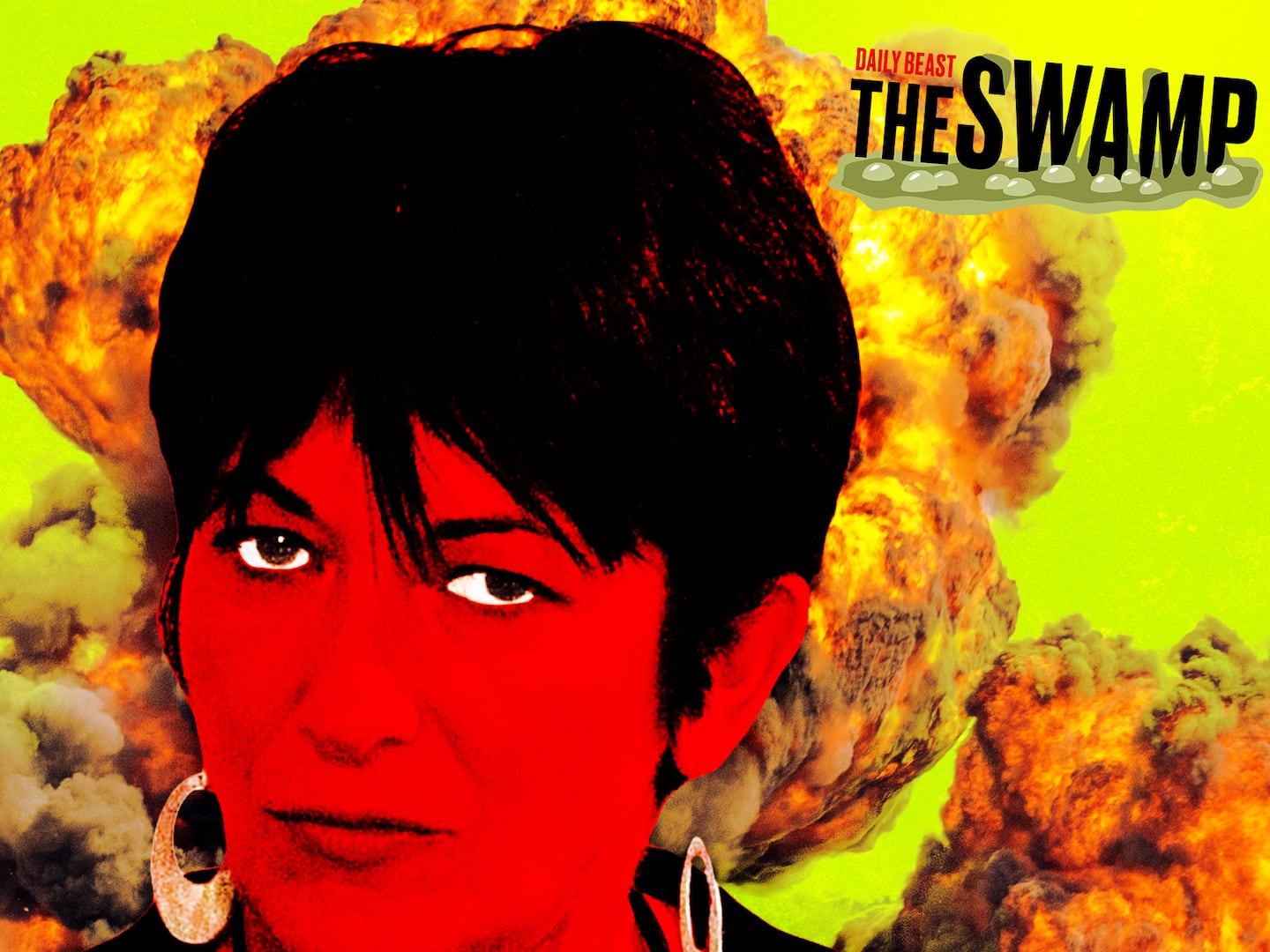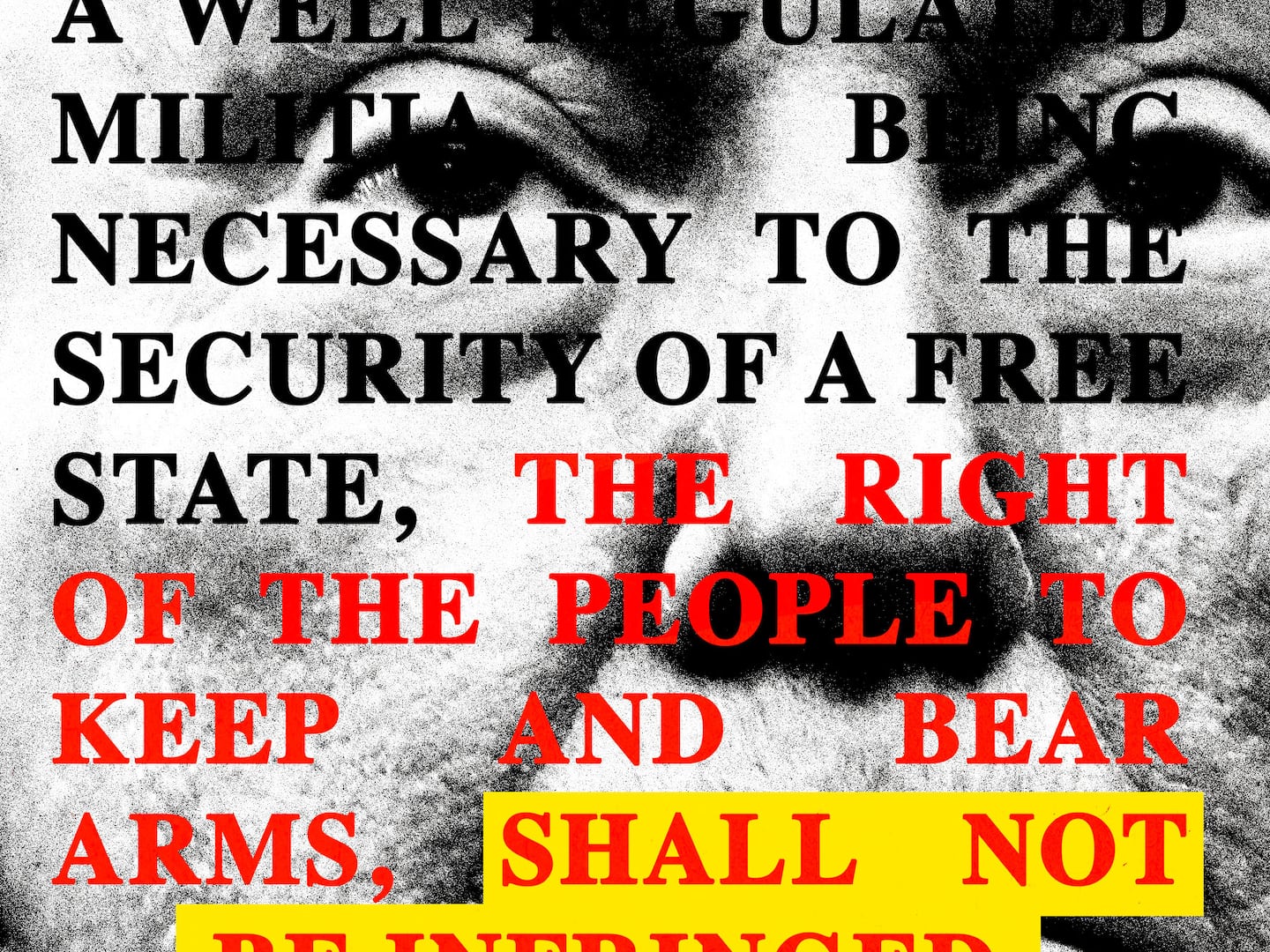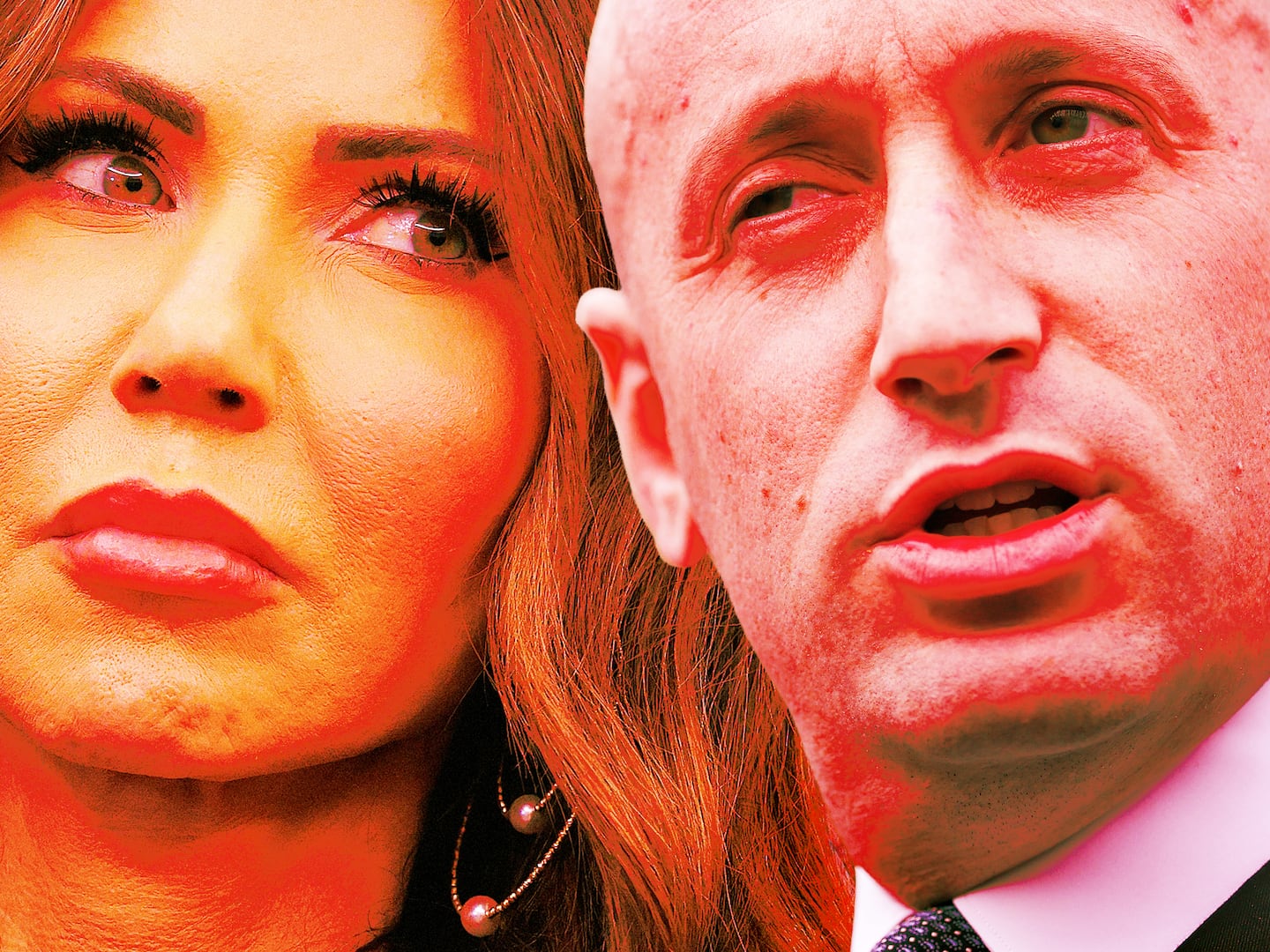Poor Bill O’Reilly.
The beleaguered Fox News star—who in recent days has faced unwelcome scrutiny for his tall tales about covering the 1982 Falklands war, and on Tuesday had his veracity further challenged by a report that he fabricated an account of his journalistic exploits in his supposedly nonfiction book, Killing Kennedy—is upset that rival media outlets are being so mean and nasty to him.
“On a personal note, I’m pretty tired of all the garbage,” the most popular man on cable television complained Tuesday night during a self-pitying segment on The O’Reilly Factor.
By now, pretty much anybody who cares about such things knows that O’Reilly was either repeatedly and recklessly imprecise in publicly recalling his brief stint in Buenos Aires 32 years ago covering a riot of angry Argentines after the military junta surrendered to the British navy, or else he actively embellished his role as a rookie CBS News correspondent who supposedly dodged bullets while being chased by the Argentine army, faced down a young soldier pointing an M-16 at his head, and dragged his injured, bleeding cameraman to safety in the middle of a “combat situation”—while his colleagues cowered in their rooms at the Sheraton.
And yet, because he is Bill O’Reilly, he is grinning (or at least baring his teeth) through his personal apocalypse and brandishing a swift sword at his presumably contemptible enemies. Fox News chairman and CEO Roger Ailes, as he has so often during O’Reilly flaps of the past, is backing his boy to the hilt, having issued a statement that “Ailes and all senior management are in full support of Bill O'Reilly.”
Meanwhile, Fox News is crowing about a big uptick in O’Reilly’s already world-beating ratings. Monday night’s program garnered 3.3 million viewers—the highest Nielsen numbers yet for 2015—and boasted 568,000 viewers in the key 25-54 age demographic for which advertisers pay a premium. So if history is any guide, O’Reilly will emerge without a scratch.
Yet he doesn’t sound like a particularly happy warrior. Lefty journalist David Corn, whom O’Reilly has called “a guttersnipe” and “a piece of garbage” in recent days, deserves to be “in the kill zone,” he snarled to the TV Newser blog. Corn is the co-author of the Mother Jones article, “Bill O’Reilly Has His Own Brian Williams Problem,” that started the Fox News anchor’s ordeal last Thursday.
O’Reilly pal Sally Quinn, widow of legendary Washington Post editor Ben Bradlee, took issue with Mother Jones’s thesis, telling The Daily Beast: “I think it’s ridiculous to compare Bill O'Reilly to Brian Williams [the NBC anchor who was punished two weeks ago with a six-month unpaid suspension for exaggerating his wartime exploits in Iraq]. O’Reilly is an entertainer and everything he does is totally subjective, including his memories. To attack him is simply to increase his ratings and the sales of his phenomenally popular books. Lighten up, everybody.”
“Lightening up” might have been difficult on Monday evening, when O’Reilly warned The New York Times media reporter Emily Steel that if he didn’t like what she wrote about him, “I am coming after you with everything I have. You can take it as a threat.”
O’Reilly’s quote to the Times, with its exhilarating promise of violence (the rhetorical kind, surely), gave extended life to an undesirable storyline that Fox News’s publicity juggernaut had been toiling assiduously, and until that moment fairly successfully, to tamp down and snuff out as the new week commenced. But it is now Day 6 and counting of O’Reillypalooza.
Overwhelming aggression is how O’Reilly rolls, and how he manages in the end to skate away from each potentially career-harming controversy: answer every criticism with total warfare; respond to a lobbed grenade by going nuclear. In this sense, at least—despite his doubters and detractors—he exists in a perpetual war zone.
“Bill has always been a combative personality,” said his longtime friend Steve Cohen, who as news director of Channel 2 in New York, the CBS-owned-and-operated station, hired him on the reporting staff three decades ago. “He was combative about what he saw as justice and injustice. He had a highly refined sense of what he thinks is right and wrong. He had a sense of justice about stories, or of what other folks in the news business were doing to each other, or about himself. He was always someone who felt he had to stand his ground and be engaged in battle. I think his view of the world is that there’s a battle going on, and he is, in some sense, a crusader for what he believes in.”
An O’Reilly pal from his local news days in Boston, former WCVB news director Phil Balboni, declined to take a position in the current controversy over O’Reilly’s alleged embellishments, but said: “I know him to be a person of real integrity, and while he has an outsized personality, he’d probably be the first person to acknowledge it.” Balboni, who hired O’Reilly at the ABC station after his CBS career fizzled, added: “I’ve never known him to exaggerate the truth or to make up a story about himself. I’m not surprised that he would be vigorously defending his reputation. I think anybody in this circumstance would do the same. As to how vigorously, I would leave it to others to determine the proportionality.”
Former Washington Post editor Jefferson Morley came away from a 2003 appearance in The Factor’s so-called “No-Spin Zone”—where he was booked to discuss Arab media reaction to the U.S. military’s ouster of Saddam Hussein—with a slightly different impression.
“What I remember was his relentless bullying that was not on the point, which I just kind of parried and tried to step out of his way,” said Morley, who authored Tuesday’s article that convincingly demonstrates—through audio recordings of phone calls and other strong evidence—that O’Reilly was far away in Dallas, Texas, when he claims in his Kennedy book, on Page 300, that he was knocking on a door in Palm Beach, Fla., and “heard the shotgun blast that marked the suicide” of a former CIA informant with apparent knowledge of the Kennedy assassination. (Fox News didn’t offer a comment on Morley’s article.)
“It was shortly after Saddam’s statue was pulled down and O’Reilly said, ‘Well, we showed them, didn’t we?’ and I said, ‘Not really, if you read the Arab press,’” Morley recalled of his Fox News appearance. “It was as if he wanted to impute to me his own animus. He wanted to create a target. That’s why I felt it was bullying. But, hey, that’s showbiz.”
The bullying theme comes up a lot among veteran guests of The Factor, some of whom seem to be suffering from post traumatic stress disorder. It is, indeed, a rare soul who can withstand the O’Reilly onslaught.
“He is a bully,” said retired Massachusetts congressman Barney Frank, whose memorable October 2008 dustup on The Factor is a YouTube favorite. Democrat Frank, then chairman of the House Financial Services Committee, quickly found himself in a shouting match with O’Reilly, who repeatedly called him a “coward” who was dispensing “BS” and “crap” about the causes of the financial meltdown; Frank gave as good as he got, calling O’Reilly “stupid” and “boorish.”
“I’ve never been on any other show where the host literally and physically controlled the microphone and controls the conversation,” Frank told The Daily Beast. “He also has another tactic I’ve noticed. He will call you out with what he thinks is a gotcha, but when it’s clear it’s not a gotcha he immediately changes the subject. He has very little tolerance for honest disagreement.”
Frank added: “When you go on his show, you have two choices: either be reasonable and let him dominate with his ranting, or yell back at him. You either look timid or as boorish as he is. One of my advantages it that I have long ago accepted the fact that avoiding boorishness was probably beyond me.”
Thus Frank said he’s looking forward to going on The Factor next month to promote his memoir, Frank: A Life in Politics from the Great Society to Same-Sex Marriage.
Comedian Joy Behar, a longtime cohost on ABC’s The View, famously walked off the syndicated daytime show in October 2010, along with cohost Whoopi Goldberg, after guest panelist O’Reilly shouted and gesticulated at them during a heated argument about the so-called “Ground Zero Mosque.”
“I walked off because I had the feeling I was being bullied, and I think bullies should be called out,” Behar told The Daily Beast. She added that O’Reilly should be careful when he hurls insults at the co-author of the Mother Jones article. “Don’t fuck with David Corn,” she said. “David Corn is one tough hombre.”
Jeremy Glick, today an assistant professor of Caribbean literature at Hunter College, had his own notable baptism by fire during a 2003 appearance in which O’Reilly lost his temper on the air and, when the cameras were turned off, invited Glick to leave his studio immediately or, according to some accounts, O’Reilly threatened, “I’ll rip your fucking head off.”
Glick’s father, Barry, a worker at the Port Authority, was among the thousands who died in the Sept. 11, 2001 terrorist attack on the World Trade Center; O’Reilly was outraged that Glick had signed a newspaper ad criticizing President George W. Bush’s military actions in Iraq and Afghanistan.
“You keep your mouth shut,” O’Reilly yelled at Glick at one point, pointing a finger in his face. “You have a warped view of this world and a warped view of this country...I hope your mom isn’t watching this...Cut his mike! I’m not gonna dress you down any more.”
The 2004 documentary Outfoxed; Rupert Murdoch’s War on Journalism shows how O’Reilly continued to attack Glick, and mischaracterize his views, long after he was ejected from the studio.
Twelve years after his close encounter, Glick told The Daily Beast: “Why would you expect rational, reasonable thinking from someone who doesn’t know the difference between a falafel and a loofa sponge?”—a reference to allegations of sexually charged comments, and apparent confusion on O’Reilly’s part, in an embarrassing sexual harassment lawsuit filed against O’Reilly by one of his female producers. The headline-making suit was settled out of court in October 2004.
During Tuesday’s pity-party on The Factor, O’Reilly and Fox Business Network personality John Stossel, an avowed libertarian, enumerated all the ways in which the liberal media elite had snubbed, dissed and otherwise marginalized them during their pre-Fox decades in network television because they didn’t embrace the left-wing orthodoxy of tougher gun laws, abortion on demand, government regulation, and taxpayer-funded welfare—an attitude which Stossel summed up as “Any civilized person thinks that way, and if you don’t, you’re a cretin, and we’re gonna get you.”
O’Reilly commiserated with his fellow victim: “You know as well as everybody in this building that if you go out and say, ‘I work for Fox News’ at a party or anything like that, you’re gonna get people who hate you, they don’t even know you, just because you work at FNC.”
“Totally,” Stossel agreed. “They’ll just turn around and walk away.”
But lest The Factor’s loyal viewership burst into tears at the unfairness of it all, O’Reilly injected some levity: “Stossel and I have known each other for a very long time, when we covered the Battle of the Bulge in World War II. Just a little jest, there, Stossel—you know what I’m talkin’ about?”





